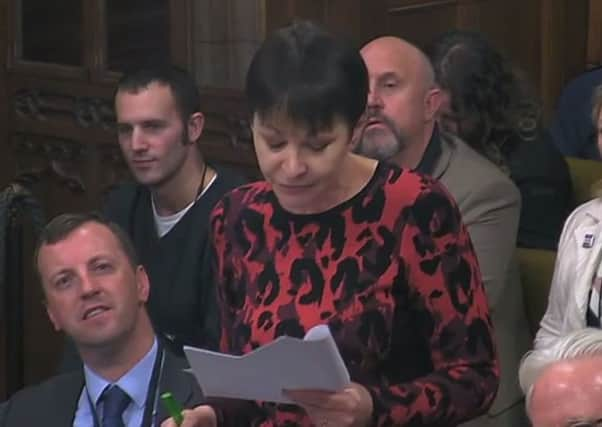UK has '˜outdated, dysfunctional electoral system' - Brighton MP


A petition calling for first-past-the-post (FPTP) to be replaced by proportional representation for general elections gained more than 103,000 signatures and was debated by MPs in Westminster Hall yesterday (Tuesday October 30).
However the Government has defended the current arrangements as a ‘robust method of electing MPs’ and pointed to the 2011 referendum, where the country rejected a move to the alternative vote system.
Advertisement
Hide AdAdvertisement
Hide AdMs Lucas, who is co-leader of the Green Party and its only MP in the Commons, described being ‘deeply worried about what our outdated, dysfunctional electoral system is doing to the legitimacy of our governance system - a system that not only fails the political parties and fails to deliver effective government, but fails the citizens of this country’.
She suggested that more than two-thirds of votes cast in the June general election were ‘in effect wasted’, and claimed that a third of people do not think voting for their preferred party will make a difference.
The Brighton Pavilion MP echoed the Electoral Reform Society’s claims that the 2015 general election was the most disproportionate in electoral history, and called for a system which improved the chances of electing a Parliament that better reflects modern Britain.
Currently less than a third of MPs are women, while people of colour, disabled people, carers, and lesbian, gay, bisexual and transgender people are all underrepresented in Parliament.
Advertisement
Hide AdAdvertisement
Hide AdShe added: “A winner-takes-all approach to elections promotes adversarial politics. It encourages each of the major parties to seek to defeat their opposition unequivocally, negating the need for post-election co-operation, and essentially not to take any real account of what voters wanted when they cast their votes.
“It also means that policy is likely to change dramatically when Governments change, with greater extremes and a greater impact on economic and environmental policy and on social justice and inclusion.”
In response Chris Skidmore, parliamentary secretary for the Cabinet Office, said: “The electorate understand well how their representatives in Parliament are selected under the first-past-the-post system, and it makes it easier for electoral administrators to deliver an election accurately and quickly.
“The Government therefore do not support proportional representation, as we consider it to be more complicated without delivering the same benefits as first past the post.”
Advertisement
Hide AdAdvertisement
Hide AdBefore the debate Darren Hughes, chief executive of the Electoral Reform Society, said: “First past the post is failing on its own terms –and June was its third strike.
“The arguments for fair votes are stronger than ever. Millions of votes were thrown on the electoral scrapheap in June’s election: 68 per cent of ballots had no impact on the result. That’s 22 million votes going to waste.”
What do you think? Email the newsdesk.